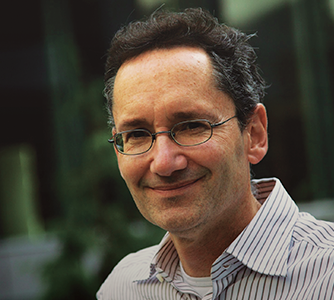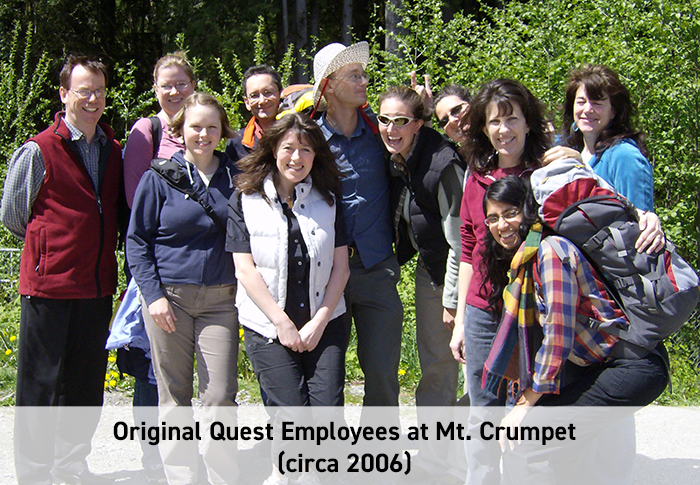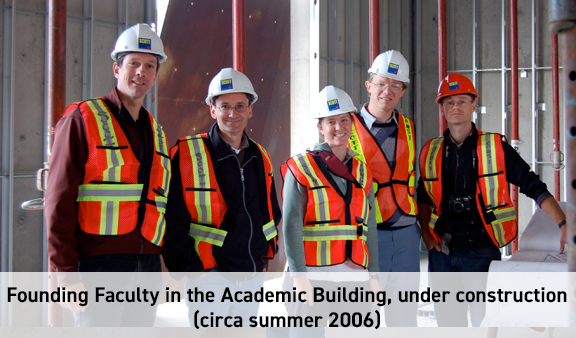 Quest University celebrated the years of hard work put in by Dr. Eric Gorham this summer as he officially stepped back from his teaching duties and entered into retirement. As the very first faculty member ever hired at Quest and the last of the founding faculty, his role in the formation of the university’s curriculum during its early days was substantial. In fact, Quest University would not be what it is today if not for his significant contributions.
Quest University celebrated the years of hard work put in by Dr. Eric Gorham this summer as he officially stepped back from his teaching duties and entered into retirement. As the very first faculty member ever hired at Quest and the last of the founding faculty, his role in the formation of the university’s curriculum during its early days was substantial. In fact, Quest University would not be what it is today if not for his significant contributions.
Before Quest

Eric first heard about Quest in 2005, back before the school had even launched. Gorham was on sabbatical and was visiting Quadra Island with his wife. At this point in his career, he was Assistant Provost and Professor of Political Science at Loyola University New Orleans. While on the island, he heard rumors about a man named Dr. Strangway who was trying to create a new type of university.
“It was very vague and seemed sort of unusual,” said Eric of his first impressions, but the concept of a liberal arts education involving a foundation program intrigued him. He decided to track down Dr. Strangway and give him a call.
“I have to say I was lucky in a way that I was American,” admits Eric. “I didn’t really know how famous David Strangway was or I might have never made that call.”
Meeting Dr. Strangway
They met in Vancouver with a plan to discuss the concept of a foundation program and this new university. Foundation programs were an area of interest for Eric, as he was currently working on something similar at Loyola. But a few minutes into the conversation, things took a turn.
“For an hour and forty-five minutes, he was asking me more things than I was asking him,” says Eric. “It was at that point that I realized he didn’t really know what he was going to create in terms of an academic program. That got me wondering about the place and what it could be about.”
Eric found the concept of this new school fascinating in principle, but at that time there was nothing really built in the way of an academic structure.
“They had people there, working in broad strokes on the academic program,” explains Eric. “They had hired consultants, but they needed actual professors there to start creating the courses and the programming.”
Becoming Faculty

Soon after returning to New Orleans, Hurricane Katrina struck and completely upended Eric’s life. But because of this tragedy, Eric and wife decided to try contacting Dr. Strangway again, to see if he would be looking for professors. Sure enough, he was, and Eric was hired as the first Quest faculty a few weeks later.
Eric returned to Canada in late May 2006, with some of the early founding faculty joining in mid-June or late-June. Together, they began to work on building the academic program.
“There were about 4 or 5 of us. We spent about a year working on the program in little cubby holes on Loggers Lane, across from the Brennan Park Centre,” says Eric of that time. “Strangway basically said to us, ‘Do what you want, but you have to have a block program and you have to have these foundation courses.’ But he didn’t say what the foundation courses had to be.”
Building Something New
This led to the creation of the Foundation Program at Quest and much of what exists today. It took some trial and error, but the early faculty quickly realized they needed to give students a substantive way to create their own program while studying various disciplines. This led to the creation of the Question course.
“That was something I ended up creating myself and my colleagues helped work on it with me so we could flesh it out,” says Eric. “I was also in charge of putting together the very first Cornerstone.”
In addition to all this, Eric was also responsible for creating the Social Sciences division at Quest. “My job was to hire faculty members and to create a program that would integrate sociology, anthropology, economics, psychology, political science, geography, etc.”


Balancing Arts and Sciences
Reflecting back on his time in those early days, Eric says that it was really important for them to balance the arts and sciences—something that many liberal arts colleges across North America struggle to do.
“At other institutions, the emphasis tends to be more on the arts than the sciences. Students are required to take more courses in the humanities, the social sciences, and not as many in the physical sciences, or quantitative reasoning, or mathematics, or life sciences. We tried to strike that balance,” Eric says.
In sum, Eric played a crucial role in helping establish Quest as a premier educational institution in Canada, and the university owes him a deep debt of gratitude. Although he will be greatly missed as a member of the faculty, his legacy will live on.
“I’m retiring from the university, but I’ll never retire from my former students,” says Eric in closing. “Any former students that want to get in touch with me—I’m more than happy to chat with them, and find out about them, and see what’s happening with their lives. If they need advice, I’m happy to give it. George has graciously allowed me to keep my email address in retirement as well, so I’m accessible at eric.gorham@questu.ca.”


